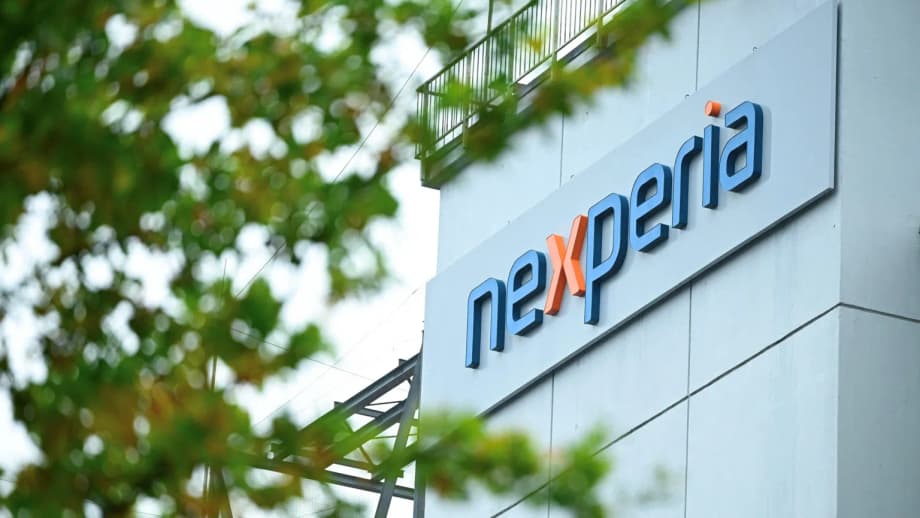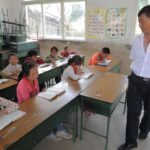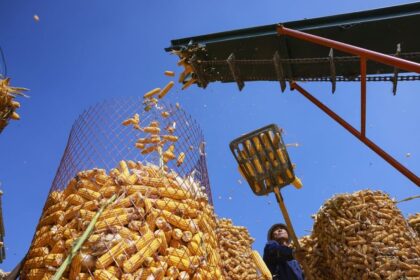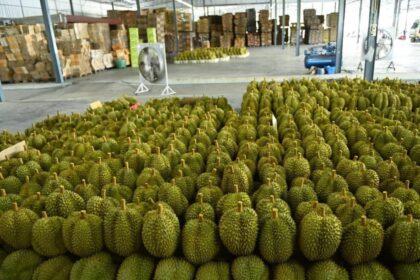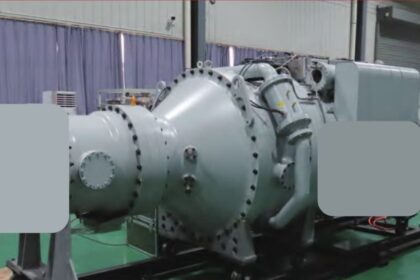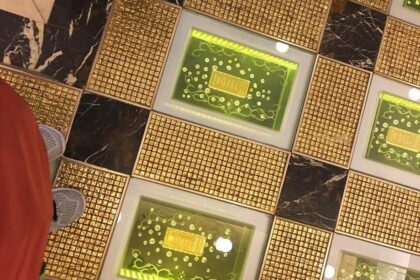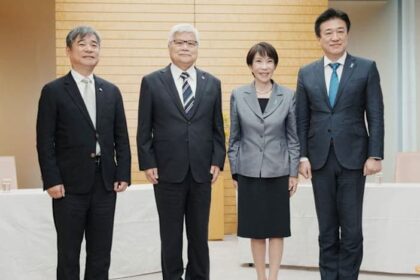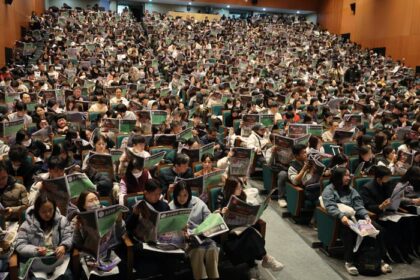Beijing moves to grant exemptions as carmakers warn of shortages
China said it will loosen export controls on chips made by Nexperia and finished in Chinese facilities, opening a path for shipments to resume to European customers. The move follows a sharp escalation in September when the Netherlands took control of the Dutch based company from its Chinese owner after an official review found serious governance shortcomings. In response, Beijing blocked the re export of completed Nexperia products from China to Europe, a step that immediately alarmed carmakers, parts suppliers and electronics manufacturers. The Chinese government has now indicated that companies that meet defined conditions will be eligible for exemptions, a signal that deliveries of essential components could restart in the coming days.
- Beijing moves to grant exemptions as carmakers warn of shortages
- How the Dutch takeover set off a supply shock
- What Nexperia makes and why it matters
- A pause, then a reset after Trump Xi talks
- Inside the bottleneck at Dongguan
- Impact on European automakers
- What companies should do now
- Risks that could still derail supply
- Key Points
At the heart of the problem is a cross border assembly chain that Europe has relied on for years. Nexperia fabricates large volumes of wafers in the Netherlands and other European sites. Around 70 percent of those units are then shipped to China for final assembly, testing and packaging, before returning to customers in Europe. When China froze re exports, that loop snapped. With inventories thin, the European Automobile Manufacturers Association warned that chip stocks would last only weeks without relief. In parallel, the Dutch controlled company told customers it would stop sending chips back to China for processing, a move aimed at protecting supply while the dispute unfolded.
The apparent shift in Beijing comes amid new high level diplomacy. US President Donald Trump and Chinese President Xi Jinping met this week in South Korea, and US officials were expected to publish a fact sheet outlining a limited trade arrangement. People involved said the plan included restarting shipments from Nexperia facilities in China. While Beijing did not spell out the scope of any deal, the Ministry of Commerce said it will review requests and grant exemptions that satisfy its criteria.
Chinas Ministry of Commerce (MOFCOM), which administers export controls, framed the move as a pragmatic step to keep factories running. In its statement, the ministry said:
We will comprehensively consider the actual situation of enterprises and grant exemptions to exports that meet the criteria.
How the Dutch takeover set off a supply shock
On 30 September, the Dutch government invoked a Cold War era law designed to ensure the availability of essential goods during emergencies. Officials said an investigation had uncovered serious governance shortcomings at Nexperia under its Chinese parent, Wingtech Technology. The state took control to secure production capacity and removed the companys China based chief executive. The aim, according to Dutch officials, was to make sure chips would not become unavailable to European users in a crisis.
Beijing reacted forcefully. It accused The Hague of improper interference in the internal affairs of an enterprise and blamed the Dutch action for disrupting production and supply chains. China also accused Washington of leaning on Dutch authorities as tensions over chip technology spread. In December 2024, the United States placed Wingtech on its entity list, a designation that restricts access to US technology on national security grounds.
In Britain, scrutiny of Nexperia predates the current dispute. The company was forced to sell its Newport silicon plant after lawmakers and ministers raised security concerns linked to Chinese ownership. Nexperia still operates a site in Stockport, and it continues to say it is financially independent of Wingtech.
In public remarks this weekend, a Commerce Ministry spokesperson said Dutch intervention had upended trade flows:
The improper interference in corporate affairs has caused chaos in the global production and supply chain.
What Nexperia makes and why it matters
Nexperia makes basic building block components. These include diodes, small signal and power transistors, logic chips and voltage regulators that control currents, protect circuits and manage power. They are inexpensive parts, often costing cents, but they are fitted into nearly every car, industrial module and consumer device. Modern vehicles use thousands of these parts across engine control, safety systems, lighting and power management.
Nexperia is one of Europes largest volume suppliers of these standard components. Industry estimates indicate its parts account for a very large share of the electronic components used in the European automotive sector, close to half in some categories. That concentration has raised the stakes for a region that still relies on just in time manufacturing.
From wafer to finished chip
The companys process spans two stages often called front end and back end. Wafers are fabricated in plants in the Netherlands, Germany and the United Kingdom. At that stage, thousands of tiny chips are created on a silicon disc. Those wafers are shipped to assembly and test sites in China for back end finishing, where the chips are cut, packaged, wired, and tested. Only after this step can they be installed on circuit boards. Breaking that chain means European fabs can make wafers, but the parts cannot be delivered to customers without packaging and test.
European carmakers and their suppliers warned that even if alternative suppliers exist for many of these standard parts, switching is not immediate. Auto components must pass strict validation for quality and reliability. Requalifying a new source can take weeks or months, which is why a short disruption in a high volume, low cost part can stop a production line.
The European Automobile Manufacturers Association (ACEA), which represents major brands and suppliers, said the Chinese restrictions risked bringing factories to a halt:
Without these chips, European automotive suppliers cannot build the parts and components needed to supply vehicle manufacturers and this therefore threatens production stoppages.
A pause, then a reset after Trump Xi talks
The easing signaled on Saturday came after a meeting in Busan between President Trump and President Xi. The two leaders discussed chips, and US officials were expected to publish a fact sheet later in the day describing a limited trade arrangement. People familiar with the talks said the plan included the resumption of Nexperia exports from Chinese facilities to customers in Europe.
Beijing did not list specific product lines or companies in its public message. It said firms facing practical difficulties could apply for exemptions through the Ministry of Commerce or local authorities. China also indicated that the United States would temporarily pause enforcement of its so called 50 percent subsidiary rule, which had broadened export restrictions to entities that are majority owned by a blacklisted company. Wingtech, Nexperias owner, has been on the US list since December 2024.
At the same time, European Union and Chinese officials met in Brussels to discuss export controls on critical inputs. EU officials welcomed Beijings decision to suspend new controls on rare earths for 12 months, describing it as a step that supports predictable trade in a sensitive area. Olof Gill, a spokesperson for the European Commission, said the pause would help stability.
This is an appropriate and responsible step in the context of ensuring stable global trade flows in a critically important area.
Inside the bottleneck at Dongguan
Even before Beijing signaled the exemptions, Nexperia was already adjusting operations. In a letter to customers dated late October, interim chief executive Stefan Tilger said the company had suspended wafer shipments to its assembly plant in Dongguan in southern China. The letter cited a failure by the local unit to meet agreed contractual payment terms in recent weeks, and it said sales to distributors in China would need to be settled in yuan rather than foreign currencies.
Tilger said the company would protect customers by developing alternative routes and that it was not withdrawing from China. He also made clear that shipments would not resume to the Dongguan site until obligations were met.
In the letter, Tilger wrote:
Unless these contractual obligations are fully satisfied, we cannot resume wafer supply to the site.
Impact on European automakers
The immediate risk for European carmakers is downtime. Many assembly plants run with minimal inventories. A shortage of tiny components that cost cents can stop an engine control unit, a sensor or a lighting module from moving to the line. Several manufacturers set up crisis teams to track inventories and deliveries. Stellantis established a war room to monitor supply. Honda adjusted production at plants in North America, and it temporarily paused operations at a site in Mexico when parts ran short. Nissan said its chip stocks would last into the first week of November.
Even when there are substitute parts, changing suppliers takes time. Automakers must certify that a substitute works the same way in every condition. That process includes electrical, thermal and vibration tests, field trials, and documentation. Regulators and customers demand evidence that a change does not affect safety or durability. For that reason, the fastest fix is often to restore the original supply.
The exemptions promised by Beijing are aimed at doing exactly that. If export licenses are granted quickly, standard parts that are assembled and tested in China can move again to European customers. Nexperia has also told clients it will route product flows that do not require processing in China, which can ease pressure while backlogs clear.
What companies should do now
Firms that rely on Nexperia parts can prepare applications for exemptions and work through the Ministry of Commerce and local authorities. Early applicants are likely to move faster through the queue. Clear documentation of end users, product codes and quantities will help approvals. Companies should maintain transparent records for European regulators as well, because national authorities will continue to monitor compliance as the Dutch state holds control over the company.
Businesses can also reduce exposure by diversifying back end finishing. Several contract assemblers outside China, including in Southeast Asia and Eastern Europe, can package and test standard parts. Moving a portion of volumes closer to European fabs can cut transit and shorten approval cycles. These steps take time, yet they can build resilience in case export rules change again.
Risks that could still derail supply
The practical test will be how broad the exemptions are and how fast they are processed. A narrow scope could leave gaps in key part numbers. Logistics backlogs might add delays even after paperwork is cleared. Currency settlement issues in China may persist, since the local unit has shifted sales to yuan for some customers. Contracts and credit terms could take weeks to normalize.
Policy risk remains. The United States could tighten rules on transactions with companies linked to blacklisted entities. China could reimpose controls if political talks stall. The Netherlands may insist on further governance changes at Nexperia as a condition for lifting its direct control. The United Kingdom will continue to scrutinize sensitive assets after forcing the sale of the Newport plant. All of these steps are incremental, yet the combination can still affect delivery timelines.
Key Points
- China will grant exemptions to its chip export ban, allowing some Nexperia shipments to reach European customers.
- The Netherlands took control of Nexperia in September using a Cold War era law after flagging governance concerns.
- Beijing criticized Dutch intervention and initially blocked re exports from China, raising the risk of European factory stoppages.
- About 70 percent of chips produced in the Netherlands go to China for finishing before being re exported.
- Trump and Xi met in South Korea, and a US fact sheet was expected with steps that include resuming Nexperia shipments.
- China said companies can apply to MOFCOM for exemptions and that it will assess cases individually.
- Nexperia paused wafer deliveries to its Dongguan plant over contract and payment issues, while seeking alternative supply routes.
- The EU welcomed a 12 month pause on new Chinese rare earth controls amid broader talks on export rules.
- Automakers warned of production risks, but swift exemptions could prevent shutdowns if logistics and approvals move quickly.


